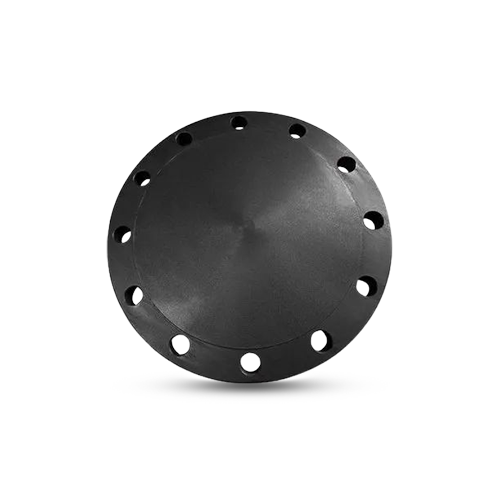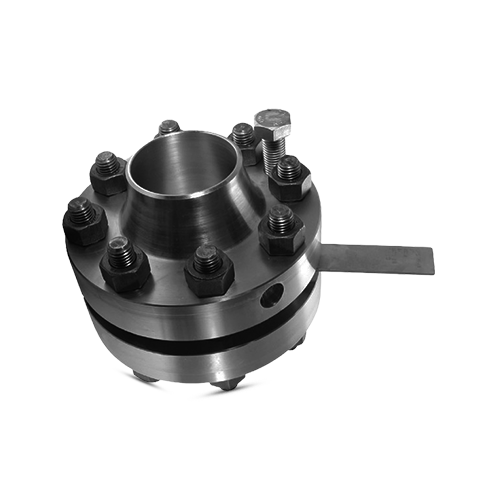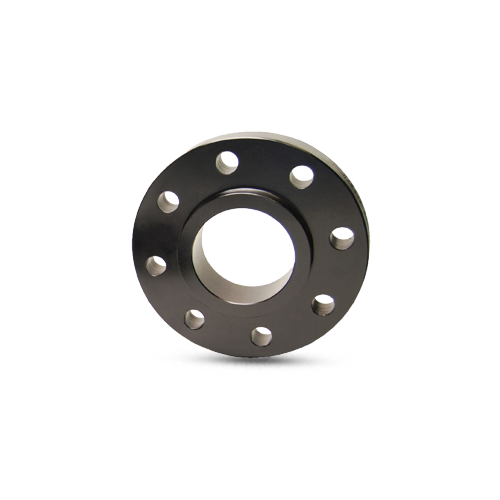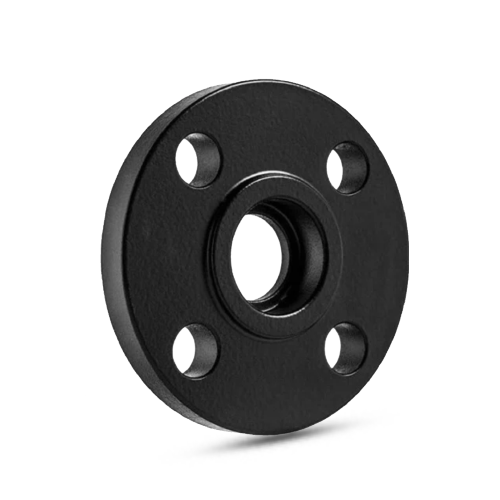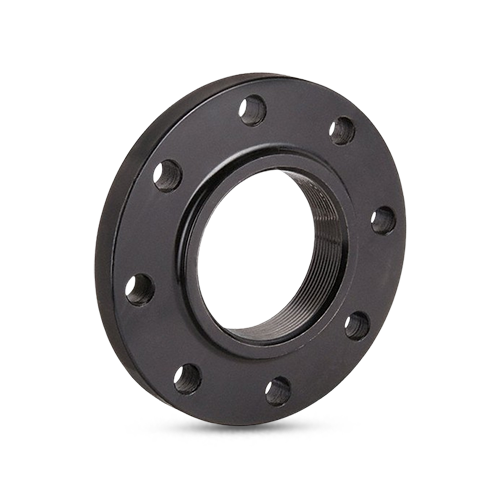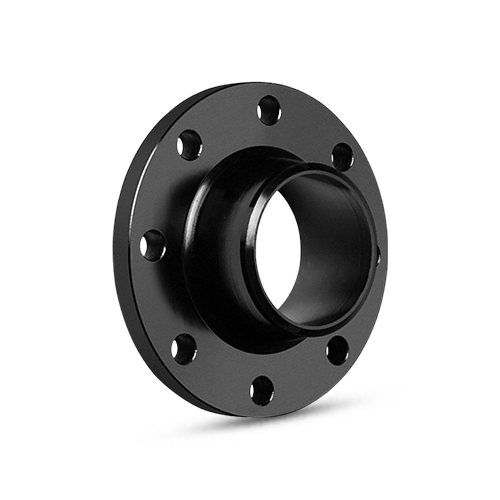Carbon Steel Flanges
Home - Carbon Steel - Carbon Steel Flanges
Carbon Steel Flanges
EBY Fasteners offers a comprehensive selection of carbon steel flanges, adhering to industry standards and available in multiple grades to match your project's specific strength, environmental, and budgetary requirements
The Versatility of Carbon Steel Flanges
Carbon steel’s unique blend of strength, adaptability, and affordability make it the preferred material for reliable flanges in diverse piping applications. EBY Fasteners offers a comprehensive selection of carbon steel flanges, available in various grades to suit your specific needs. These flanges provide robust and adaptable solutions for connecting pipes, valves, pumps, and other critical components
- Low Carbon Steel Flanges (Mild Steel) : With 0.04% to 0.3% carbon content and minimal manganese and silicon, this grade offers exceptional ductility and weldability. It's ideal for flanges in general-purpose piping systems or those with less demanding pressure requirements
- Medium Carbon Steel Flanges : Containing a slightly higher carbon content (0.3% to 0.8%) and increased manganese, this grade provides a desirable balance of strength, hardness, and ductility. Often heat-treated for enhanced properties, medium carbon flanges are a versatile choice for applications requiring higher load-bearing capacity and durability
- High Carbon Steel Flanges : With carbon content ranging from 0.8% to 2%, high carbon steel flanges offer superior hardness, strength, and wear resistance. They may contain alloying elements for specialized properties. These flanges excel in demanding applications where durability and resistance to wear are paramount
Technical Specifications
- ASTM A105/A105N : This standard sets guidelines for carbon steel flanges used in various piping systems operating at a range of temperatures. It mandates chemical composition limits and specifies mechanical properties to ensure flanges possess the necessary strength and reliability in these conditions
- MSS SP-44 : This standard focuses on steel pipeline flanges. It provides strict specifications for flange dimensions, tolerances, and material requirements. Adherence to MSS SP-44 guarantees precision and consistency, ensuring proper fit and performance within pipeline systems
- ASME B16.5 : This comprehensive standard covers a wide range of pipe flanges and flanged fittings. It sets requirements for design, dimensions, tolerances, pressure-temperature ratings, materials, and markings. Flanges manufactured to ASME B16.5 ensure compatibility, structural integrity, and safe operation within piping systems
- API Standards (Where Applicable) : The American Petroleum Institute (API) has developed numerous standards relevant to flanges used in the oil and gas industry. These standards may impose additional requirements for materials, design, and testing to withstand the demanding environments and specific applications found in this sector
- ASTM A694/A694M : Specifically designed for high-pressure and high-temperature piping systems. It also dictates stringent chemical composition limits and rigorous mechanical testing requirements to ensure flanges can withstand these challenging environments
Customized Flanges as per project's specific requirements
- Low Carbon Steel (Mild Steel) Flange : This grade used for flanges typically contains 0.05% to 0.30% carbon, 0.25% to 0.90% manganese, and 0.15% to 0.40% silicon. Strict limits are placed on sulfur (maximum 0.050%) and phosphorus (maximum 0.040%) to ensure ductility and weldability
- Medium Carbon Steel Flange : For flanges, medium carbon steel generally contains 0.30% to 0.60% carbon for increased strength. Manganese content is also higher (0.60% to 1.65%), while silicon ranges from 0.15% to 0.60%. Sulfur and phosphorus are kept below 0.050% and 0.040%, respectively
- High Carbon Steel Flange : Flanges made from high carbon steel contain 0.60% to 1.00% carbon for superior hardness and wear resistance. Manganese levels typically range from 0.30% to 0.90%, and silicon content can reach up to 0.60%. Sulfur and phosphorus are strictly limited to a maximum of 0.050% and 0.040%
- AISI 1018 Hot Rolled, As-Forged : This grade offers a tensile strength of 64,000 psi and a yield strength of 37,000 psi. It possesses moderate ductility with 25% elongation and has a hardness of 126 Bhn
- AISI 1045 Hot Rolled, Normalized : This grade demonstrates increased strength compared to AISI 1018. It has a tensile strength of 82,000 psi and a yield strength of 53,000 psi. Elongation is slightly lower at 16%, and it exhibits a hardness of 170 Bhn
- AISI 4140 Quenched and Tempered : This grade offers the highest strength levels among the three. It boasts a tensile strength of 115,000 psi and a yield strength of 95,000 psi. It maintains a decent level of ductility with 17% elongation and has a hardness of 235 Bhn
The dimensional tolerances of carbon steel flanges are governed by standards such as ASME B16.5 and MSS SP-44. These standards provide detailed specifications for dimensions, finish, marking, materials, and pressure-temperature ratings for various flange types in buttwelded, socket welded, and threaded configurations. Adherence to these standards ensures compatibility and leak-proof performance within piping systems
- Pressure Classes : Carbon steel flanges are classified into pressure classes, such as Class 150, Class 300, etc. These classes represent the maximum allowable working pressure (MAWP) that the flange can reliably withstand at specific temperatures. Understanding pressure classes is crucial for selecting the right flange for your piping system's requirements
- Class 150 : This class is suitable for lower-pressure applications and is often used in general-purpose piping systems, utility lines, and less critical processes
- Class 300 : A highly versatile class, Class 300 flanges find wide use across industries due to their ability to handle a broad range of pressures and temperatures. They offer a balance of strength and affordability
- Class 600 : This class is designed for higher-pressure applications where more robust flanges are necessary. They may be found in process piping, power generation, or other systems with elevated pressure requirements
- Classes 900, 1500, 2500 : These classes cater to extremely high-pressure applications found in industries like oil and gas, chemical processing, or specialized hydraulic systems. They are engineered with thicker walls and often higher-strength materials to withstand the demanding forces within these systems
Mechanical Standards
Key Standards Organizations
- ASTM International : ASTM International is responsible for the development of several standards governing mechanical testing and carbon steel product qualities
- American Society of Mechanical Engineers (ASME) : The American Society of Mechanical Engineers (ASME) focuses on components for pressure vessels, pipes, and associated systems. Contains specifications with mechanical property criteria
- International Organization for Standardization (ISO) : The International Organization for Standardization (ISO) develops international standards, including those for mechanical testing of steel
Important ASTM Standards for Mechanical Properties
- ASTM A105N (SA105N) : This is a very common and mild carbon steel used in many industries. It is extra tough, meaning it won’t break easily and is reasonably priced
- ASTM A350 LF2 : This standard covers several grades of carbon and low-alloy steel or ring-rolled flanges
- ASTM A694 : This specification covers carbon and alloy steel for pipe flanges and fittings, valves, and parts for high-pressure transmission service
- DIN 2533 : This is a German standard (Deutsches Institut für Normung) that specifies requirements for flanges
Mechanical Properties in Flange Standards
- ASTM A216 (Cast Carbon Steel Flanges) : This standard may specify grades with minimum tensile strength, yield strength, and elongation requirements
- ASTM A694 (Rolled Carbon Steel Flanges) : This standard establishes various grades based on minimum yield strength. It may also dictate tensile strength and elongation requirements
- ASME B16.5 (Pipe Flanges and Flanged Fittings) : This comprehensive standard often references ASTM A370 for testing procedures, ensuring consistent methods for determining mechanical properties
Additional Relevant Standards
- MSS SP-44 (Steel Pipeline Flanges) : May include specific mechanical property requirements, especially for pipeline applications
- API Standards : The oil and gas industry has API standards that might establish additional mechanical property requirements for critical environments


